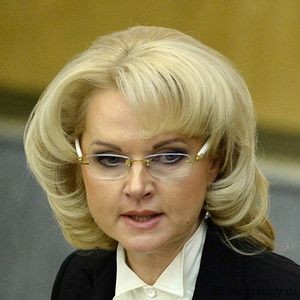Experts warn of a lingering impact of the pandemic on the Russian

One of the main risks for the economy of RUSSIA and developing countries in general is the insufficient pace of vaccination against covid-19, says Tatyana Lysenko, Leading Economist for Emerging Markets in the EMEA Macroregion (Europe, Middle East, Africa) of the S&P Global Ratings rating agency. She expressed this opinion at the annual S&P conference (RBC followed the event).
As follows from the S&P report prepared for the forum, at the beginning of November 2021, only 33% of the population in Russia had been vaccinated. “This is rather due to the reluctance of the population to be vaccinated, despite the availability of Russian-made vaccines,” the material says.
As of November 18, according to the government’s operational headquarters for combating CORONAVIRUS, almost 58 million Russians have been fully vaccinated (primary and re-vaccination), which is 39.7% of the total population. The level of herd immunity is estimated by the authorities at 49%, while 90-95% is ideally required to stabilize the situation with coronavirus, Deputy Prime Minister Tatyana Golikova said on November 10. The government submitted to the State Duma at the end of last week two bills on the mandatory introduction of QR codes (issued to vaccinated and recovered patients) in cafes and shops, as well as on intercity transport, which may become one of the incentives for the population to get vaccinated.
Sber CIB Chief Economist Anton Struchenevsky believes that one of the risks may be that the concept of herd immunity will be called into question if the vaccinated get sick with coronavirus more often. Therefore, increasing the rate of vaccination is not a panacea, he believes. As Struchenevsky noted, the increase in the number of coronavirus infections among those vaccinated suggests that the pandemic with humanity is not for one or two years.
S&P predicts the growth of the Russian economy at the end of 2021 at the level of 4% (for comparison: the forecast of the Ministry of Economic Development is 4.2%), however, in 2022 the pace will slow down to 2.6%, after which it will completely approach the long-term trend level of about 2% follows from the agency's report. GDP per capita will stabilize within $11,000-12,000, which is still below the 2012 level. S&P explains the lack of economic growth in the long term by unfavorable demographic trends (including a reduction in the labor force) and structural weaknesses in the Russian economy and the political economy as a whole, such as the dominant role of a less efficient public sector, low competition and institutional flaws (a low level of independence of the judiciary, selective application of the law).
Read together with it:
- An HSE expert reported on the "evolution of inequality" in access to healthcare.An HSE researcher analyzed Russians' access to healthcare over a ten-year period. In 2021, the influence of financial factors became noticeable for the first time: low income reduces the likelihood of visiting a DOCTOR.Over the ten years from 2011 to 2021, the number of Russians requiring medical care but not receiving it remained virtually unchanged, according to a study by Lyudmila Zasimova, hea...
- The IEA sees a risk of a decline in oil production in Russia due to sanctions.The IEA sees a risk of reduced oil production in RUSSIA due to US sanctions , but maintains its production forecast. According to the IEA, Russian oil exports will remain unchanged.There is a "significant downside risk" to Russia's oil production forecast due to US sanctions, the International Energy Agency (IEA) said in a report.BLOOMBERG . The agency's experts believe that the latest US sanction...
- UniCredit заявил о галактических усилиях из-за санкций против РоссииUniCredit старается не нарушить «более 15 тыс. санкций», а также не «совершать ошибки», которые позволят изъять его активы в России, заявил гендиректор. После начала военной операции банк начал рассматривать возможность ухода Итальянский банк UniCredit прилагает «галактические усилия», пытаясь соблюсти международные санкции в отношении своего российского подразделения. Об этом заявил генеральный д...
- Russian agriculture: self-sufficiency continues to growThe industry has a track record of implementing new technologies and increasing productivity. RUSSIA is already confidently self-sufficient in grain, MEAT, fish, vegetable oil, and SUGAR. Grain and vegetable production is also forecast to be higher this year, despite unfavorable weather conditions in some regions. The Ministry expects historic highs for some crops and continues to support agricult...
- Колумбия: При экспорте скота сертификация и прослеживаемость больше не являются необязательнымиВысококачественное животноводство, особенно при экспорте, требует сертификации и прослеживаемости. Это необходимые условия для выхода и конкуренции на многих международных рынках, а также на некоторых всё более требовательных внутренних рынках. Колумбийское животноводство не является исключением из этих правил, и, хотя предстоит ещё многое сделать, всё большее число ферм и компаний внедряют эти ме...
- США объяснили снятие санкций с проекта АЭС в Венгрии с участием РоссииСША хотят, чтобы строительство АЭС «Пакш-2» завершилось, это необходимо, чтобы Венгрия стала энергетически независимой, заявил Рубио. Орбан сообщал, что после встречи с Трампом добился исключения из санкций Соединенные Штаты вывели из-под санкций проект АЭС «Пакш-2» в Венгрии, подтвердил госсекретарь Марко Рубио после встречи министров иностранных дел стран G7 в Канаде. Ранее об этом говорил венге...
- Зеленский ввел санкции против своего бизнес-партнераМиндич и Александр Цукерман, который, как считается, отвечает за его финансовые вопросы, значатся как граждане Израиля. Санкции против них ввели на три года, они включают блокировку активов. На Украине сочли ограничения мягкими Владимир Зеленский Президент Украины Владимир Зеленский подписал указ о введении санкций в отношении совладельца студии «Квартал 95» Тимура Миндича и его знакомого бизнесме...


